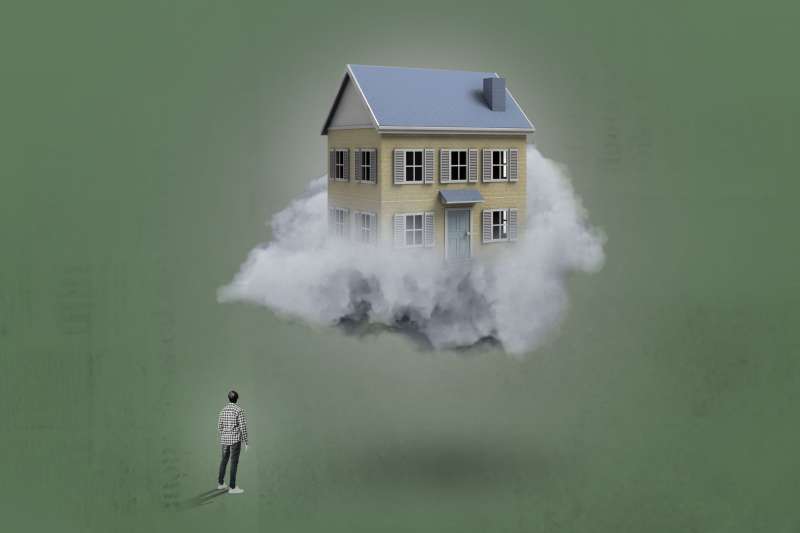 The Fannie Mae Home Purchase Sentiment Index (HPSI) remained comparatively flat in May —decreasing by only 0.3 points— but inching nearer its 10-year- and pandemic-low of 63.0 from April 2020.
The Fannie Mae Home Purchase Sentiment Index (HPSI) remained comparatively flat in May —decreasing by only 0.3 points— but inching nearer its 10-year- and pandemic-low of 63.0 from April 2020.
Surveyed consumers continue to express concerns about housing affordability, with the “Good Time to Buy” indicator reaching a new survey low, as 79% of respondents reported that now is a bad time to buy a home.
Furthermore, 70% of respondents expect mortgage rates to continue their recent rise over the next year. A larger share of consumers also expressed concern that they may lose their job in the next 12 months, but that component remains firmly positive generally, with only 16% of consumers expressing their cynicism. Year-over-year, the full index is down 11.8 points overall.
“Consumers’ expectations that their personal financial situations will worsen over the next year reached an all-time high in the May survey, and they expressed greater concern about job security,” said Doug Duncan, Fannie Mae Senior VP and Chief Economist. “Further, respondents’ pessimism regarding homebuying conditions carried forward into May, with the percentage of respondents reporting it’s a bad time to buy a home hitting a new survey high. The share reporting that it’s ‘easy to get a mortgage’ also decreased across almost all segments.”
Home Purchase Sentiment Index – Component Highlights
Fannie Mae’s Home Purchase Sentiment Index (HPSI) decreased in May by 0.3 points to 68.2. The HPSI is down 11.8 points compared to the same time last year.
- Good/Bad Time to Buy: The percentage of respondents who say it is a good time to buy a home decreased from 19% to 17%, while the percentage who say it is a bad time to buy increased from 76% to 79%. As a result, the net share of those who say it is a good time to buy decreased 5 percentage points month-over-month.
- Good/Bad Time to Sell: The percentage of respondents who say it is a good time to sell a home increased from 72% to 76%, while the percentage who say it’s a bad time to sell decreased from 21% to 19%. As a result, the net share of those who say it is a good time to sell increased 6 percentage points month-over-month.
- Home Price Expectations: The percentage of respondents who say home prices will go up in the next 12 months increased from 44% to 47%, while the percentage who say home prices will go down decreased from 25% to 23%. The share who think home prices will stay the same decreased from 26% to 25%. As a result, the net share of Americans who say home prices will go up increased 5 percentage points month-over-month.
- Mortgage Rate Expectations: The percentage of respondents who say mortgage rates will go down in the next 12 months decreased from 5% to 4%, while the percentage who expect mortgage rates to go up decreased from 73% to 70%. The share who believe mortgage rates will stay the same increased from 18% to 20%. As a result, the net share of Americans who say mortgage rates will go down over the next 12 months increased 2 percentage points month-over-month.
- Job Loss Concern: The percentage of respondents who say they are not concerned about losing their job in the next 12 months decreased from 84% to 81%, while the percentage who say they are concerned increased from 11% to 16%. As a result, the net share of Americans who say they are not concerned about losing their job decreased 8 percentage points month-over-month.
- Household Income: The percentage of respondents who say their household income is significantly higher than it was 12 months ago remained unchanged at 26%, while the percentage who say their household income is significantly lower increased from 14% to 16%. The percentage who say their household income is about the same decreased from 56% to 54%. As a result, the net share of those who say their household income is significantly higher than it was 12 months ago decreased 2 percentage points month-over-month.
“These results suggest to us that increased mortgage rates, high home prices, and inflation will likely continue to squeeze would-be homebuyers,” said Duncan. “As well as those potential sellers with lower, locked-in mortgage rates – out of the market, supporting our forecast that home sales will slow meaningfully through the rest of this year and into next.”
To read the full report for additional information including charts and methodology, click here.

 theMReport.com Your trusted source for mortgage banking news
theMReport.com Your trusted source for mortgage banking news








